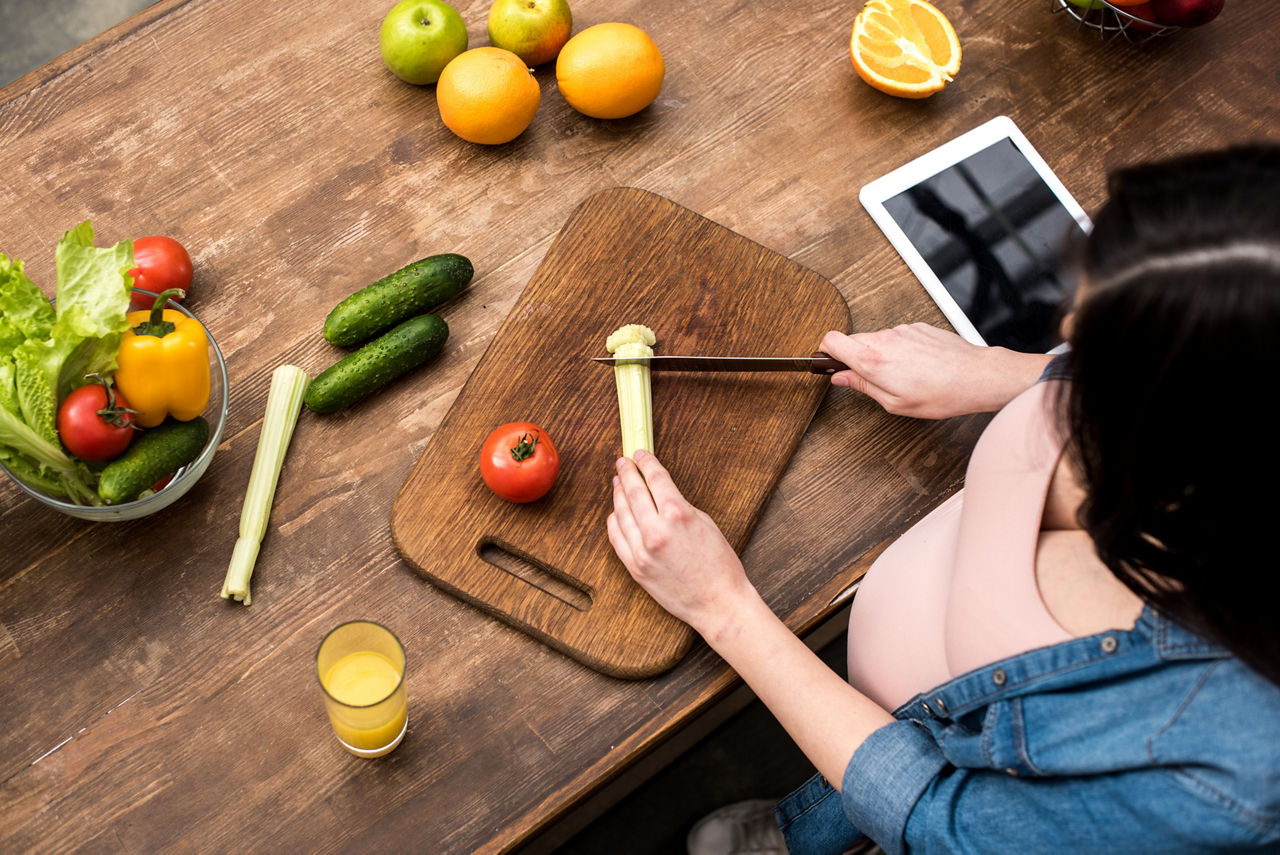Breastmilk is the best for babies. The World Health Organisation recommends exclusive breastfeeding for the first six months of life. Unnecessary introduction of bottle feeding or other food and drinks will have a negative impact on breastfeeding. After six months of age, infants should receive age-appropriate foods while breastfeeding continues for up to two years of age or beyond. Consult your doctor before deciding to use infant formula or if you have difficulty breastfeeding.
- Week 1
- Week 2
- Week 3
- Week 4
- Week 5
- Week 6
- Week 7
- Week 8
- Week 9
- Week 10
- Week 11
- Week 12
- Week 13
- Week 14
- Week 15
- Week 16
- Week 17
- Week 18
- Week 19
- Week 20
- Week 21
- Week 22
- Week 23
- Week 24
- Week 25
- Week 26
- Week 27
- Week 28
- Week 29
- Week 30
- Week 31
- Week 32
- Week 33
- Week 34
- Week 35
- Week 36
- Week 37
- Week 38
- Week 39
- Week 40
Your Pregnancy Diet: Get Your Five-a-Day
We’re not suggesting that you eat five times a day. Instead, make sure you get five servings of fruits and vegetables each day! Find out how these nutritional nibbles lower the risk of serious health problems, as well as influence your baby’s development.
When you’re at the wet market or supermarket, do you stop by for greens? In fact, do your body a world of good with colourful fruits and vegetables! Whether green, red, orange or yellow, fruits and vegetables unleash powerful vitamins, nutrients, fibre and antioxidants, which are all essential for a healthy pregnancy2.
These disease-fighting foods lower your risk of serious health problems such as heart disease10, stroke11, diabetes12 and obesity – you must be stunned like vegetable reading this. Fruits and veggies also provide key nutrients such as ascorbate, carotenoids, folate and magnesium, which all contribute to your baby’s growth[1].
The Protective Properties of Fruits and Vegetables
Antioxidants in fruits and vegetables can help protect your baby's cells from damage caused by harmful chemicals in the environment1.
Furthermore, studies have found various connections between a mother’s fruit and veggie intake and their baby’s health:
• A higher intake of leafy vegetables and apples in pregnancy has been linked to less wheeziness during infancy5
• Some research suggests that green and yellow vegetables, citrus fruit, and those containing orange-hued beta-carotene, such as sweet potatoes, carrots and oranges, may reduce the risk of childhood eczema7
What Should I Eat?
Fresh, frozen, dried and tinned fruits all count14. Plus, their skin makes a good source of fibre! A glass of fruit juice counts as part of your fruit intake, but since it’s high in sugar, drink a glass just once a day.
Here are more easy ways to increase your intake of fruit and vegetables:
• Buy frozen fruit and veg. Aside from the convenience, they can be cheaper than fresh varieties and their nutrient content is well preserved
• Snack on vegetables, such as carrots or celery sticks
• Add extra vegetables to home-cooked meals
• Try tinned fruit and vegetables, making sure there is no added salt or sugar
Folate: A First Trimester Essential
One particular vitamin that occurs naturally in vegetables is folate. Folate is a B vitamin and source of folic acid8. It is recommended that pregnant women get 400 mcg of folic acid per day until the 12th week of pregnancy!
Folate-rich vegetables include8:
• Broccoli
• Brussels sprouts
• Spinach
• Asparagus
• Peas
Since it is generally difficult to obtain folate through food, you may consider taking a folic acid supplement8. Remember your five-a-day, and enjoy the numerous health benefits that come with it!

Connect with our team of experts
We provide advice and support for you on your parenthood journey




